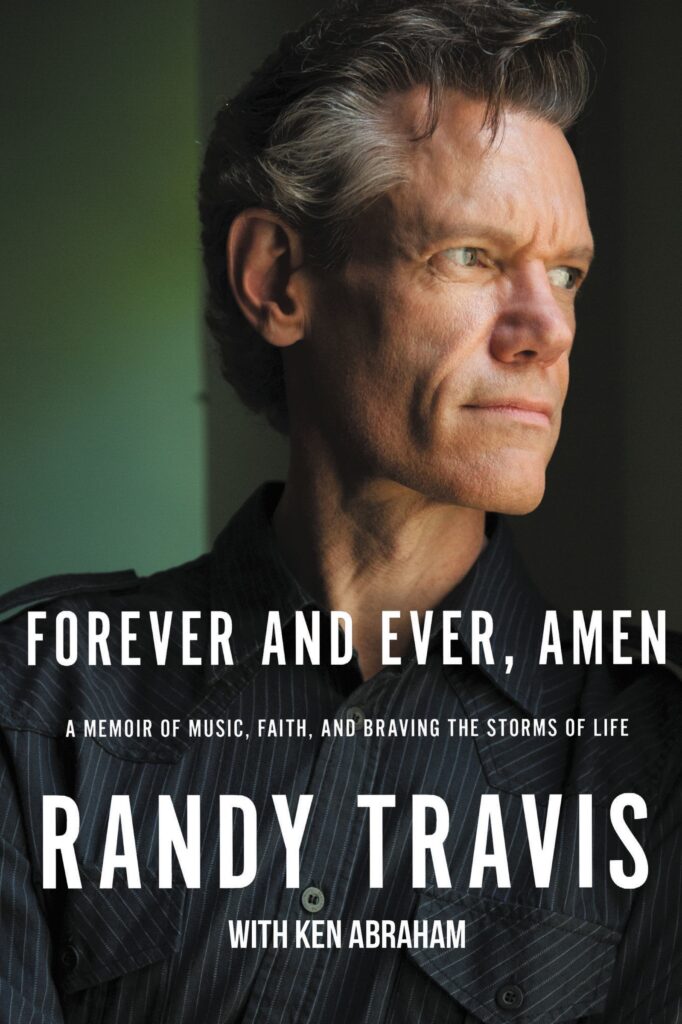
A vow whispered in warm baritone, echoing “forever and ever amen” like a prayer in a summer dusk.
In March 1987, Randy Travis released the lead single Forever and Ever, Amen from his sophomore Warner Bros. Nashville album Always & Forever. The song soared to No. 1 on the U.S. Billboard Hot Country Singles chart on June 13 and held that position for three weeks — a feat no country single had accomplished in the previous seven years. Crafted by Nashville songwriters Paul Overstreet and Don Schlitz, it became Travis’s defining anthem and a cornerstone of the neo-traditional country revival.
From its first chord, Forever and Ever, Amen declares its devotion with clarity, sincerity, and a timelessness rarely captured so neatly in a three-minute country ballad. Don Schlitz recalled that the song’s genesis came from a bedtime moment with his young son, who would turn to his mother and say, “Mommy, I love you forever and ever, amen.” That phrase, tender and unadorned, struck Overstreet and Schlitz as a doorway into a song that bridges childhood innocence, adult commitment, and the unshakeable hope of constancy.
The instrumentation adheres to the genre’s core: steel guitar, dobro, acoustic rhythm, and Travis’s warm, resonant baritone cutting through with both conviction and vulnerability. The inclusion of the word “amen” at the end of the chorus transforms the pledge into a prayer, lending sacred weight without veering into sermonizing. The lyrics gently acknowledge the passage of time and its toll on the body — “They say time takes its toll on a body, makes a young girl’s brown hair turn grey … if it all fell out well I’d love you anyway” — yet immediately counter that image with an unwavering promise. This balance between realism and eternal devotion heightens the song’s emotional impact.
In the arc of Randy Travis’s career, Forever and Ever, Amen represents much more than a chart-topping hit. It arrived at a moment when country music was searching for renewed authenticity, turning away from polished pop production toward the simple grace of steel and story. Critics credit the song — and Travis’s broader work on Always & Forever — with cementing the neo-traditionalist movement and proving that commercial success could be achieved without sacrificing the genre’s integrity. The album itself went on to sell in the millions, propelled by the emotional resonance of this single.
The cultural significance of Forever and Ever, Amen lies in its marriage of lyrical humility and emotional grandeur. It is a vow made in everyday language — as long as old men sit and talk about the weather, as long as old women sit and talk about old men — and yet it refuses to be anchored in mortality or decay. Instead, it gestures toward something beyond time, beyond change, beyond fading beauty: an unshakable heart. That quality secures the song’s place not only in Randy Travis’s legacy but also in the broader tapestry of American country songwriting.
What the listener hears is not a troubadour proclaiming conquest, but a man leaning in — his voice calm, sincere, weathered — acknowledging age, change, and the odds, yet promising anyway. That tension between realism and faith is the essence of country music at its best: grounded, honest, emotionally vast without becoming sentimental. When Travis delivers the final “amen,” you hear not an ending, but a benediction — a vow sealed in the quiet strength of belief.
Decades after its release, Forever and Ever, Amen endures. It remains a fixture at weddings, in retrospectives, and on every list of the greatest country songs ever recorded. For those who first heard it in 1987 — and for those discovering it now — it still feels like a promise worth believing in.